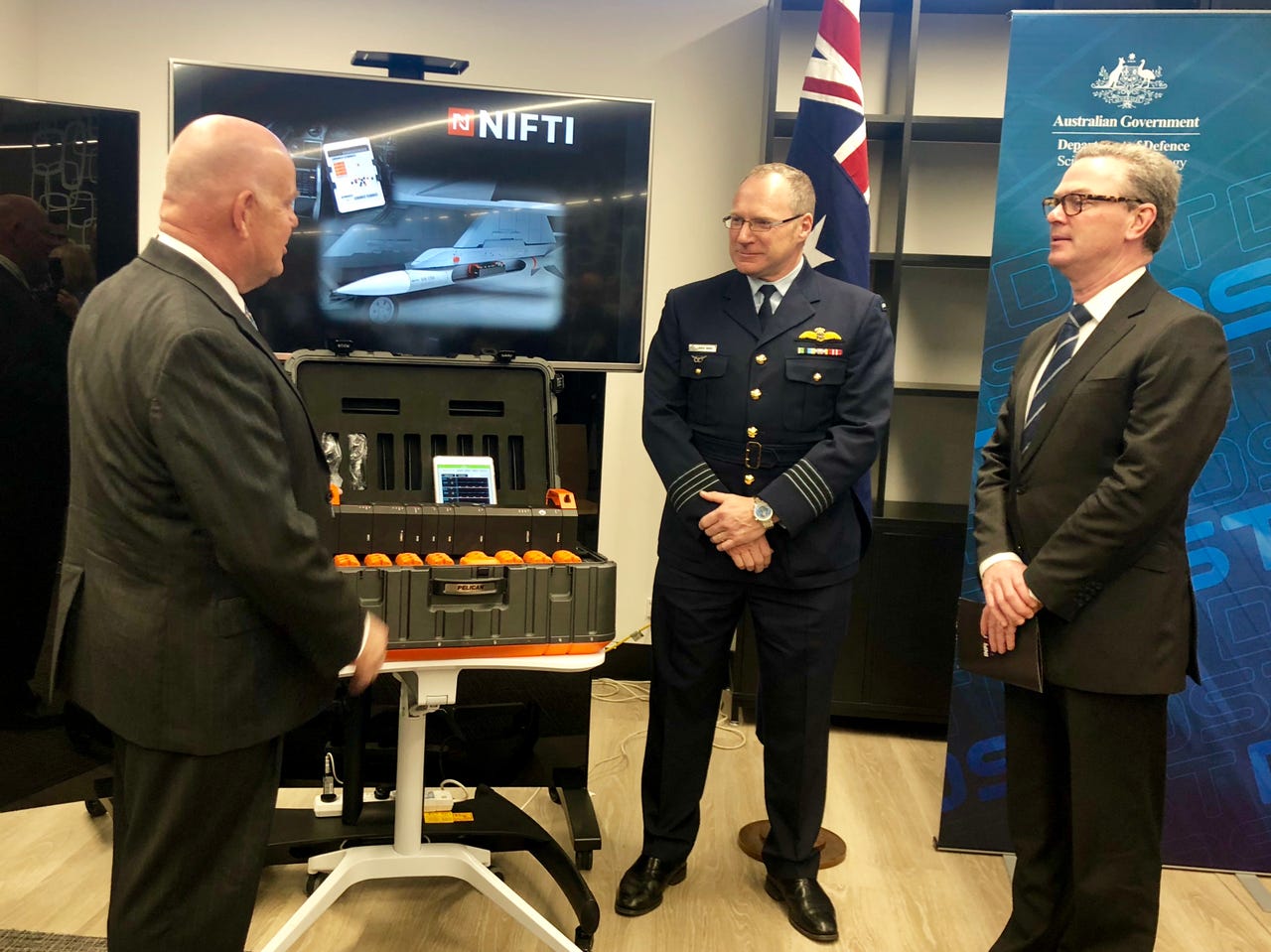Australian Air Force receives flight sensor tech from Defence


The tech and science branch of the Department of Defence has announced the development and provision of a flight instrumentation kit, a solution for flight testing and evaluation, for the Royal Australian Air Force (RAAF).
The Non-Intrusive Flight Test Instrumentation (NIFTI), conceived by Defence Science and Technology (DST) and developed by Australian SME Defence Innovations, comprises a recorder with multiple sensors that can be attached to internal and external aircraft surfaces to check conditions.
"Conventional flight tests can be costly and involve extended periods of downtime for aircraft to be modified and fitted with various test instruments," said Minister for Defence Christopher Pyne at the handover during DST's laboratories open day in Melbourne on Wednesday.
"This state-of-the-art wireless system has the ability to carry out in-flight tests without the need for time-consuming aircraft modifications."
Also announced at Wednesday's open day was a DST-developed virtual reality software, licensed to Adelaide-based SME Consilium Technology, for simulating virtual activities and environments for Defence and civilian applications.
The Infinite Studio software uses DST's multi-spectral visualisation system VIRSuite to create real-time simulations of the world in the visable, infra-red, and ultra-violet parts of the electromagnetic spectrum, through desktop computing hardware and modern gaming engines, according to Pyne.
"When ground-breaking research by Defence is matched with industry know-how, we get great innovative outcomes and Infinite Studio is an example of this," Pyne said. "This is a great outcome for Australian innovation, Defence and industry collaboration, and jobs growth."
Consilium Technology, which designs intelligent machines to complement, augment, and replace human cognition, has added new performance and fidelity to take the tech to wider markets and application domains, the Department of Defence added.
Last month, the federal government invested AU$3.07 million in four local companies for developing "innovative" solutions for Defence.
This included AU$1.2 million for Sydney-based Saber Astronautics for the development of machine-learning technology for autonomous identification and modelling of electronic threats; AU$519,000 for Synthesis Technologies to provide Defence with its 3D situational awareness and mapping tech; and AU$371,000 for Victoria's SYPAQ Systems for a handheld imaging device capable of blending different types of imagery together in real time.
Last December, the federal government contributed AU$50 million to a new centre focused on developing autonomous defence technologies and solutions in partnership with research institutions, universities, and businesses in New South Wales.
The initiative involved Marrickville-based Marathon Targets's robotic targets for military marksmanship practice, as well as Ocius Technology's "Bluebottle" unmanned marine vessel deployed at sea for surveillance purposes, among others.
PREVIOUS AND RELATED COVERAGE
<="" p="" rel="follow">
- <="" p="" rel="follow"> <="" p="" rel="follow">
<="" p="" rel="follow">
<="" p="" rel="follow"> <="" p="" rel="follow">How Australia's Department of Defence is using IBM Watson
The Department of Defence told ZDNet it has highlighted at least 14 use cases for its on-premises version of IBM Watson to use artificial intelligence to gain valuable insights out of its data.
Unisys pockets AU$90m in border biometrics and Defence IT support
The system will match those who enter Australia against a watch list of people of interest.
Troops not at risk over Strava breach: Australian Defence Force
Defence has said electronic fitness devices and apps are important to the quality of life of Australian soldiers.
Cybersecurity startup Penten scores AU$1.3m from Defence for cryptography
The million-dollar contract is for the development of a cryptography solution for the Australian Defence Force.
Why learning to code won't save you from losing your job to a robot(TechRepublic)
Programming knowledge may not be enough to future-proof your career in the age of automation. Here's why.